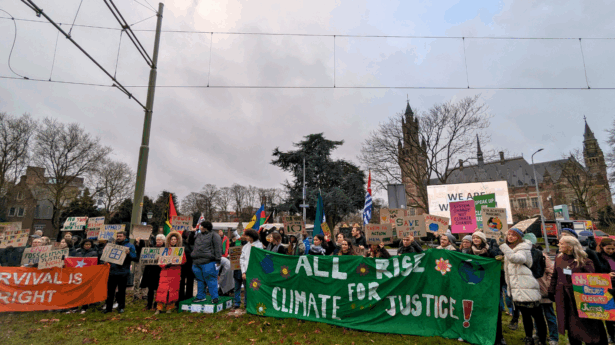The Unitarian Universalist Service Committee advances human rights through grassroots collaborations.
January 27, 2017, Rights Reading
January 27, 2017
Our weekly roundup of what we’re reading: a few select articles from the front lines of human rights that we don’t want you to miss. This week’s Rights Reading focuses on Trump’s latest executive orders released Wednesday, and which target refugees and immigrants.
Last Wednesday, President Trump made good on some campaign promises to build a border wall, limit the number of refugees and immigrants, and defund sanctuary cities. Trump has signed two executive orders, one that would expand our current border wall, and a second to expand the definition of “criminal” in order to criminalize, detain, and deport immigrants faster.
Trump has given the green light to expand our current border wall that is 650 miles long. Trump plans to use federal funding, at least initially, to complete this wall that would cover the entire U.S.-Mexico border. It is unclear how or if Trump still plans on having Mexico pay for the wall, something he insisted on during his campaign. Trump has also increased the number of Immigration and Customs Enforcement (ICE) agents and Customs Border Protection (CPB) agents.
In addition to expanding the border wall, the executive order states that those crossing the border, even asylum-seekers, will be detained. This poses a number of problems, such as the decreased possibility of a fair hearing, legal representation, and deportation. Higher rates of deportation will also be a likely result of the executive orders, as Trump is broadening the definition of “criminal alien” and thereby making it easier to deport and detain undocumented immigrants. ICE agents will also have more authority and resources to criminalize undocumented immigrants under the “Secure Communities” program.
Lastly, the new executive orders mentions potentially defunding sanctuary cities that do not cooperate with law enforcement. This is a more controversial part of the executive order, which was not elaborated on and remains unclear on how it can be legally implemented, as cutting federal funding to coerce local governments to comply is unconstitutional.
Learn more about the effects of these executive orders in the first of our three-part blog series here.
Religious organizations, denominations, and faith leaders across various faith traditions have come together to speak out against Trump’s latest executive orders. UUSC’s very own President and CEO Tom Andrews, together with UUA President Rev. Peter Morales, were featured in this article with their joint statement:
“In the face of looming threats to immigrants, Muslims, people of color, and the LGBTQ community and the rise of hate speech, harassment and hate crimes, we affirm our belief in the inherent worth and dignity of every person. We will oppose any and all unjust government actions to deport, register, discriminate, or despoil. As people of conscience, we declare our commitment to translate our values into action as we stand on the side of love with the most vulnerable among us.”
National and international religious leaders have also signed onto this letter to Trump support refugee resettlement.
UUSC and the UUA have collaborated to prepare a Declaration of Conscience, stating in the strongest possible terms our commitment in these troubling times. By signing the declaration, individuals and congregations will be affirming our core values and declaring our willingness to put them into action. Please read, sign, and share! Join us in standing on the side of love, protecting the most vulnerable among us, and defending core values that are under attack.
“To anyone who feels threatened today, or vulnerable, you are safe in Boston,” Mr. Walsh said at a news conference. “We will do everything lawful in our powerful to protect you. If necessary, we will use City Hall itself to shelter and protect anyone who’s targeted unjustly.”
In response to Trump’s executive order that threatens to defund sanctuary cities, mayors across the United States responded back with messages of standing their ground and fighting back. Cities, counties, schools, and churches that have designated themselves “sanctuary” have committed to protecting undocumented immigrants in their communities. It is estimated that there are 39 cities and 364 counties that have declared themselves as sanctuary. This does not include the number of schools and churches.
Trump has threatened to take away federal funding for those who do not comply with immigration officials, even though removing federal funding in this case would be deemed unconstitutional: “Congress is not permitted to set conditions on spending to coerce states or localities to participate in a federal program against their will.” However, mayors’ reactions have been unwavering, most notably, our own mayor here in our hometown Boston: “But perhaps no official went as far as Boston’s mayor, Martin J. Walsh. ‘To anyone who feels threatened today, or vulnerable, you are safe in Boston,” Mr. Walsh said at a news conference. “We will do everything lawful in our powerful to protect you. If necessary, we will use City Hall itself to shelter and protect anyone who’s targeted unjustly.’”

